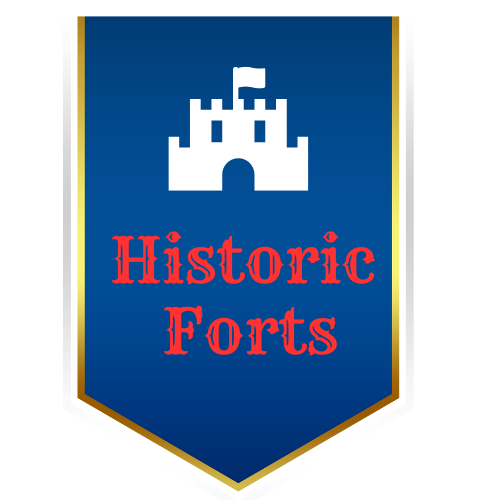Fort New Salem offers a captivating journey into the heart of colonial American life. Located in West Virginia, this reconstructed frontier settlement immerses visitors in the daily experiences of 18th-century Appalachian settlers.
Initially established in the 1790s to protect against Native American raids and foster community growth, the fort now stands as an educational and cultural beacon.
The Fort New Salem Foundation manages the site, which features historical reenactments, workshops, and a living history museum.
Through these engaging activities, Fort New Salem provides a unique window into the region’s rich heritage, making history accessible and relevant for all.
History of Fort New Salem (West Virginia)
Fort New Salem is a historical settlement in West Virginia that chronicles Appalachian life in the region. This section explores its origins and the role of the Fort New Salem Foundation.
Origins of Fort New Salem
Fort New Salem began as a frontier settlement in the 1790s in Harrison County, West Virginia. Settlers established it to protect against Native American raids and to serve as a community for the growing population.
Early residents built log cabins and a stockade, providing security and cooperation among the settlers.
Located near Salem College, the fort became crucial to local education and culture.
The settlement reflects the lifestyle and struggles of early Appalachian settlers and offers insights into the region’s development. Its preservation helps residents and visitors maintain a tangible connection to the past.
Fort New Salem Foundation
The Fort New Salem Foundation was created to preserve and manage the historic site. Since its establishment, it has worked to restore buildings, educate the public, and host events.
This organization collaborates with Salem International University to ensure the ongoing relevance of the fort in historical and educational contexts.
The Foundation organizes workshops and reenactments to bring Fort New Salem’s history to life. It emphasizes the importance of historical accuracy and community involvement.
By maintaining the site, the Foundation ensures the fort’s history is accessible to future generations, contributing to a broader understanding of Appalachian heritage.
Museum and Education
Fort New Salem offers an engaging experience through its living history museum and various educational programs. Partnering with Salem College, it provides unique educational opportunities.
Living History Museum
The living history museum at Fort New Salem brings the past to life. Visitors can see demonstrations of traditional crafts such as blacksmithing, weaving, and candle making.
The museum preserves numerous 19th-century structures to provide an authentic setting. Costumed interpreters enhance the experience by sharing stories and performing activities as they would have been done historically.
This immersive approach helps visitors understand daily life in the early American frontier.
Educational Programs
Fort New Salem offers a range of educational programs tailored for different age groups. Schools can arrange field trips where students participate in hands-on activities and learn about historical trades and lifestyles.
Workshops and interactive sessions are available for children and adults, focusing on various historical and cultural topics. Programs are designed to align with educational standards, making them a valuable resource for teachers.
These initiatives aim to enhance historical awareness and provide practical learning experiences.
Salem College Partnership
Fort New Salem collaborates closely with Salem University to enrich its educational offerings. This partnership allows college students to engage in internships, research projects, and community service related to history and education.
The collaboration enhances the curricula of relevant courses and provides practical experiences that complement academic learning.
Joint events and activities strengthen the connection between the college and the Living History Museum, benefiting students and the broader community.
Architecture and Construction
Fort New Salem showcases historical architecture through reconstructed log structures and careful preservation efforts.
Log Structures
The log structures at Fort New Salem reflect traditional frontier log house construction. Built using hewn logs, these buildings have distinctive characteristics, such as dovetail corner joints for stability.
The inclusion of shake roofs, made from split wooden shingles, adds authenticity to the frontier aesthetic. Each log structure demonstrates how early settlers maximized local resources to create durable, weather-resistant homes.
Restoration and Preservation
Restoration efforts at Fort New Salem aim to maintain historical accuracy. Original building techniques are employed to ensure the integrity of these historic structures.
Preservation involves regular maintenance and the use of period-appropriate materials. These efforts ensure that the fort remains a valuable educational resource, offering insights into the region’s architectural heritage.
Cultural and Heritage Events
Fort New Salem hosts various cultural and heritage events highlighting the region’s traditions and community spirit.
These events feature activities rooted in history, such as folk art and traditional crafts, offering unique experiences for visitors.
Spirit of Christmas in the Mountains
This event is held annually in early December, transforming Fort New Salem into a winter wonderland. The Spirit of Christmas in the Mountains includes traditional caroling, craft demonstrations, and storytelling by the fire.
Old-time Santa Claus greets children, and artisans display hand-made ornaments and gifts. Visitors can enjoy mulled cider and fresh-baked cookies while exploring decorated log cabins.
The event reflects the area’s historical holiday celebrations, providing a cozy and festive atmosphere.
Apple Butter Festival
The Apple Butter Festival celebrates a staple of Appalachian cuisine. Held every fall, the festival showcases the traditional apple butter-making process.
Large copper kettles bubble with apples, cinnamon, and sugar, stirred continuously by volunteers. Local vendors sell jars of freshly made apple butter and other autumn treats.
The event also features live music, folk art displays, and children’s games.
It emphasizes community participation, with families and visitors experiencing the age-old tradition of apple butter production.
Myths of the Mountains
Myths of the Mountains is an educational event focusing on Appalachian folklore and legends. Historians and storytellers gather to share tales about regional myths, such as the Mothman and the folklore around the spirits of the forest.
Interactive workshops allow attendees to create folk art inspired by these tales. Various exhibits display artifacts and documents related to local legends, engaging visitors in the rich tapestry of Appalachian culture.
The event aims to preserve and highlight the mystical heritage unique to the region.
Craftsmanship and Folk Arts
Fort New Salem showcases traditional crafts and folk arts that have deep roots in West Virginia’s history. The site features blacksmithing, candle making, and dulcimer playing, all integral to the local cultural heritage.
Blacksmithing
Blacksmithing at Fort New Salem exemplifies the skill and craftsmanship passed down through generations in West Virginia.
Visitors can observe blacksmiths crafting items from metal using traditional tools such as anvils, hammers, and forges.
Blacksmiths create functional items such as horseshoes, nails, farming tools, lanterns, and gates, as well as decorative items such as vases.
This practice preserves historical techniques and educates the public about the importance of blacksmiths in early American communities.
Key Points:
- Traditional tools: anvils, hammers, forges
- Crafting both functional and decorative items
- Education on historical significance
Candle Making
Candle making is another craft highlighted at Fort New Salem, reflecting an important aspect of daily life in early settlements. Candles were essential for lighting homes before the advent of electric lighting.
The process involves melting wax and pouring it into molds or repeatedly dipping a wick into the wax to build up layers. These techniques produce various types of candles, each with its unique design and purpose.
Demonstrations give visitors insight into how settlers made and used candles daily.
Key Points:
- Essential for lighting homes pre-electricity
- Techniques include molding and dipping
- Various types of candles are created
Dulcimer Playing
Dulcimer plays at Fort New Salem to celebrate West Virginia’s rich musical heritage. A staple of Appalachian music, the dulcimer has a distinct sound that resonates with the region’s cultural history.
Visitors can listen to dulcimer performances and learn about the different types of dulcimers, such as the mountain dulcimer. Musicians explain the construction and tuning of the instrument, offering a glimpse into its role in traditional folk music.
This craft is not only about music but also about maintaining a connection to the past through song.
Key Points:
- Staple of Appalachian music
- Performances and educational insights
- Types of dulcimers: mountain dulcimer
- Connection to cultural history through music
Daily Life and Traditions
Daily life at Fort New Salem revolves around the rhythms and routines typical of 19th-century Appalachian settlements. Traditional activities and longstanding customs are central to understanding the community’s way of life.
Appalachian Lifestyles
The settlers led a lifestyle revolving around agriculture and self-sufficiency. Families engaged in farming, raising crops such as corn, potatoes, and vegetables. Livestock such as chickens, pigs, and cows provided meat, eggs, and milk.
The day they typically started at dawn, involving chores like milking cows, feeding animals, and tending to the garden. Children helped with lighter tasks, while adults handled more labor-intensive work.
Evenings often included communal activities such as storytelling, music, and maintaining household tools. Due to limited access to manufactured products, homespun clothing and handcrafted goods were commonplace. This lifestyle encouraged a strong sense of community and resilience.
Settler’s Traditions
Traditional customs were integral to the community, reflecting their heritage and beliefs. Festivals and social gatherings punctuated the year, celebrating events such as harvests and religious holidays.
These gatherings included dancing, music, and feasting, strengthening communal bonds.
Handicrafts held significance, with skills in weaving, quilting, and woodworking passed down through generations. These crafts were practical and served as expressions of creativity and culture.
Folkways included storytelling and music, often featuring fiddles and banjos. These practices preserved history and conveyed moral lessons.
Religious practices were another key tradition, with frequent church meetings and community prayers.
Explore More: 11 Historic Forts in West Virginia: An Amazing Historical Insight
Facilities and Visitor Information
Visitors to Fort New Salem can expect a variety of amenities and facilities designed to enhance their experience. These include a well-maintained storehouse and thoughtful guest amenities.
The Storehouse
Fort New Salem’s historic storehouse offers a unique and authentic glimpse into the past. This building, often central to tours, displays various artifacts from the 18th and 19th centuries.
Visitors can view preserved goods, tools, and other historical items that illustrate the daily lives of the early settlers. Detailed information about each artifact is provided, enhancing the educational experience.
The storehouse stands near the front porch, a gathering area where guides share stories about the fort’s history.
Parking is conveniently located nearby, ensuring easy access for all guests. The storehouse’s authenticity is maintained with historical accuracy, adding to the site’s overall charm.
Guest Amenities
Several guest amenities aim to make visitors’ time at Fort New Salem comfortable and enjoyable. Restrooms are available and well-maintained throughout the site.
There are designated parking areas to accommodate both cars and larger vehicles, making it convenient for group visits.
A gift shop offers a range of items, including souvenirs, books, and local crafts, allowing visitors to take a piece of history home with them.
For those looking to explore further, informational brochures and maps detailing the fort’s layout and highlighting key areas of interest are provided. These resources ensure that guests can navigate and enjoy the site thoroughly.

Cory is a website owner and content creator who enjoys fishing, history, coin collecting, and sports, among other hobbies. He is a husband and father of four.
Romans 15:4 For whatever was written in former days was written for our instruction, that through endurance and through the encouragement of the Scriptures we might have hope.
